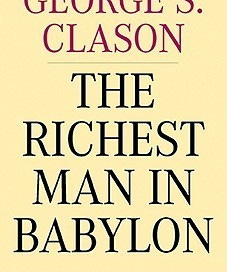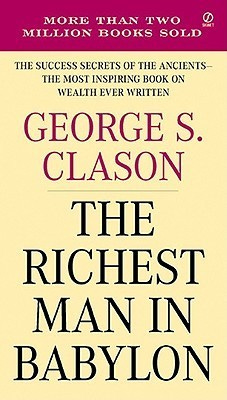The Richest Man in Babylon — Book Review [TMP #96]
Author: George S. Clason
Hi, I'm Dayo and welcome to this week's story :)
This week, we have a review: The Richest Man in Babylon by George S. Clason!
Let's not dillydally 🚀
Short Take
It’s a classic for a reason. The premise of the book is this:
“Money is plentiful for those who understand the simple laws which govern its acquisition.
Money is governed today by the same laws which controlled it when prosperous men thronged the streets of Babylon, six thousand years ago.”
It is worth reading if you’re looking to form your foundation on how growing wealth works. And that, dear friends, is why I was gifted this book six years ago. I only recently completed it 🫠— definitely a case of not knowing the value of something till you need it.
My Principal Takeaways
On my first read, my main takeaway was to save a tenth (10%) of every income that came my way. I went overboard but I got the gist: “A part of all you earn is yours to keep.” This time though, there were three others, one primary and two secondary.
The first is to protect the capital, whether in investing or in lending money out.
“The first sound principle of investment is security for thy principal.”
“Before thou entrust it as an investment in any field acquaint thyself with the dangers which may beset it…. Guard thy treasure from loss by investing only where thy principal is safe, where it may be reclaimed if desirable, and where thou will not fail to collect a fair rental. Consult with wise men.”
“The wise lender wishes not the risk of the undertaking but the guarantee of safe repayment.”
To be honest, I don’t intend to live by the last quote. I simply want to lend out what I don’t need to be repaid.
The second is a rethink on the purpose of a budget. In simpler English, its purpose is to enable pay for necessities and stuff you actually care about. “Budget thy expenses that thou mayest have coins to pay for thy necessities, to pay for thy enjoyments and to gratify thy worthwhile desires without spending more than nine-tenths of thy earnings.” I have also come to apply this concept of budgeting to how I spend my time. And of course, we’re making progress, we’re getting better.
The third is this: procrastination is ‘a habit of needless delaying where action was required, action prompt and decisive.’ That, not to spend the dividends of my investments but to reinvest it, and not to look down on work and those who choose to work but to embrace it if I want to get anywhere. So help me God.
Selah,
Dayo
ps: is this deep or nah?






Another great one Dayo! I read the book a while back so it's great to hear your perspective on it's takeaways.
This is really deep. I found the lessons helpful too.